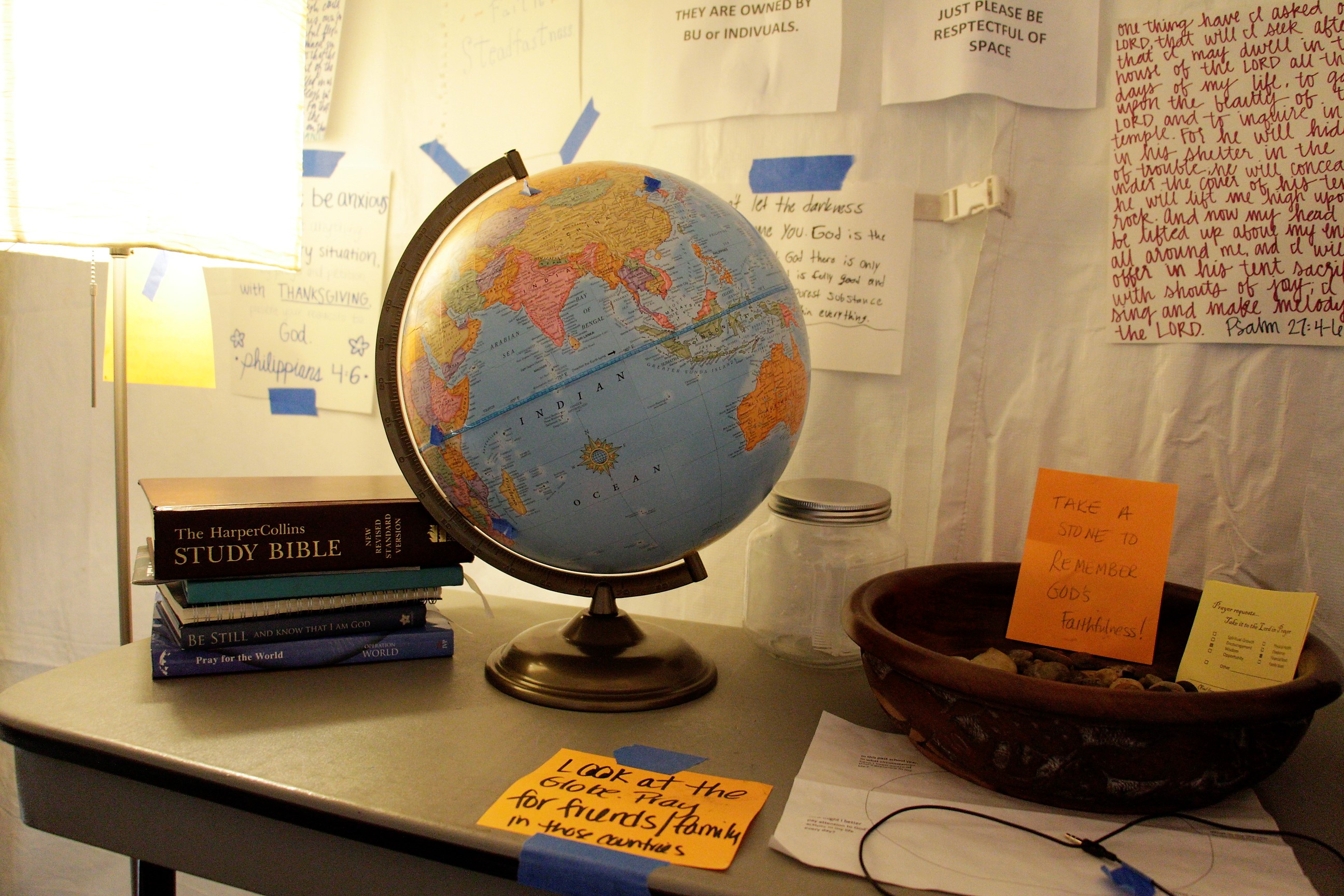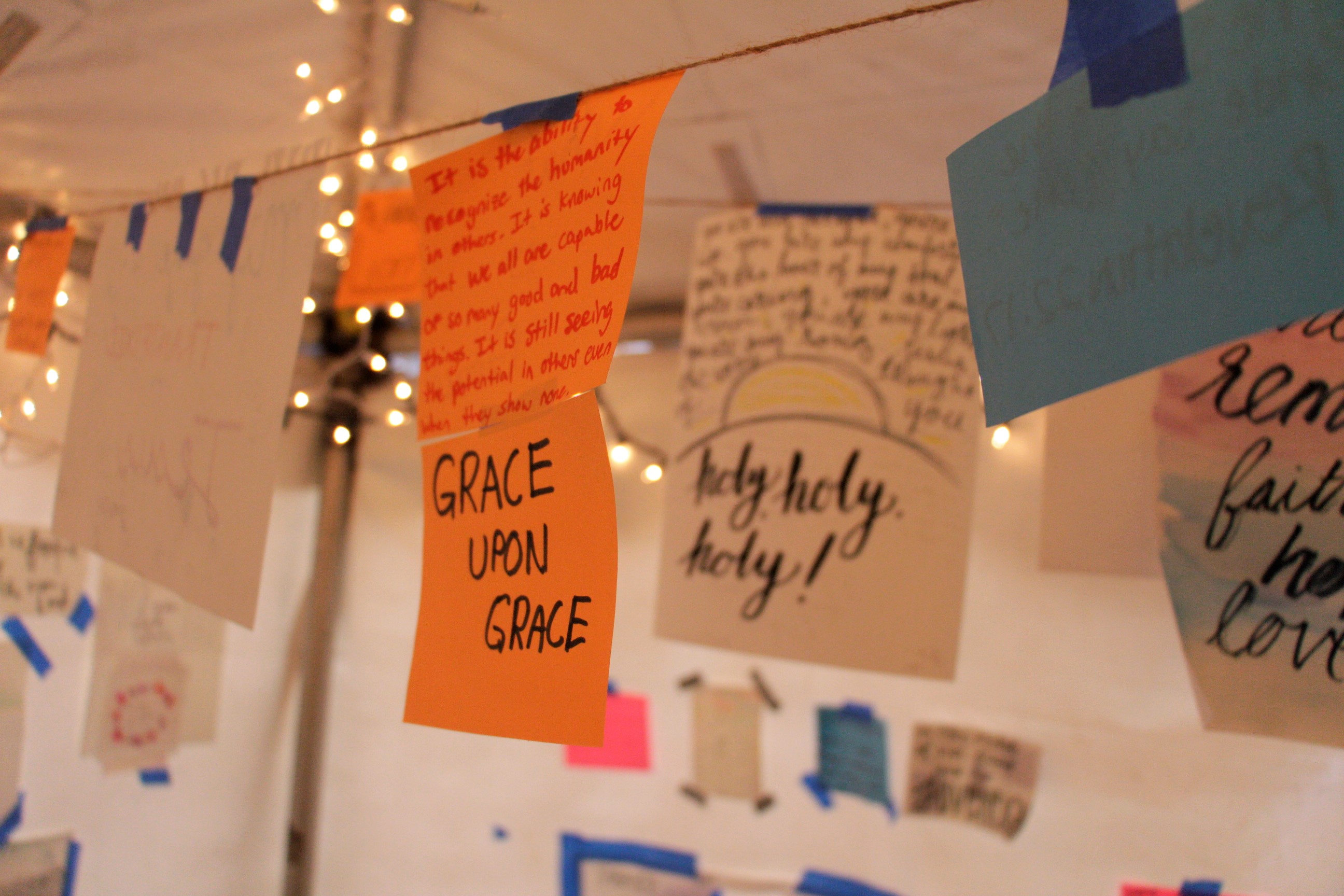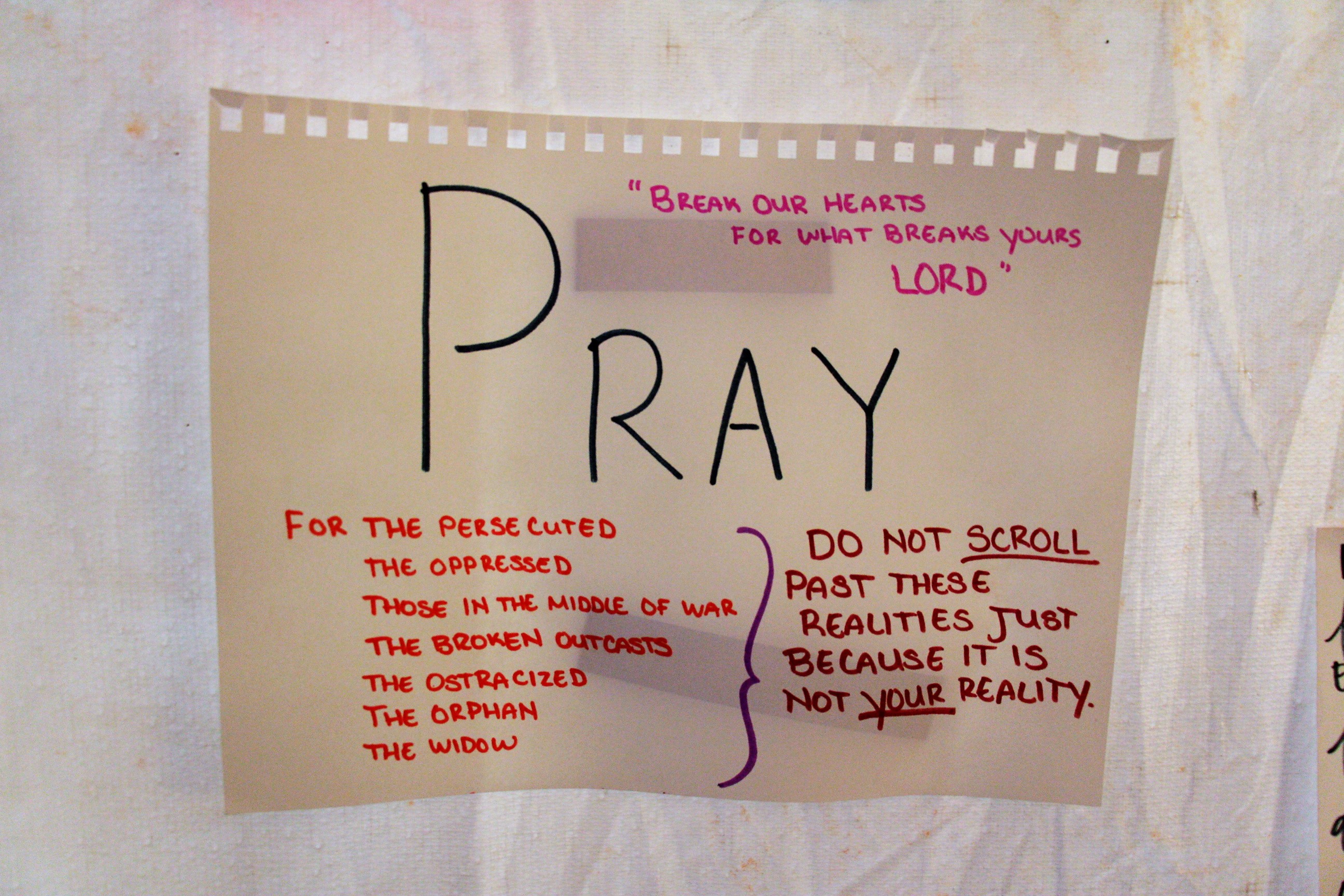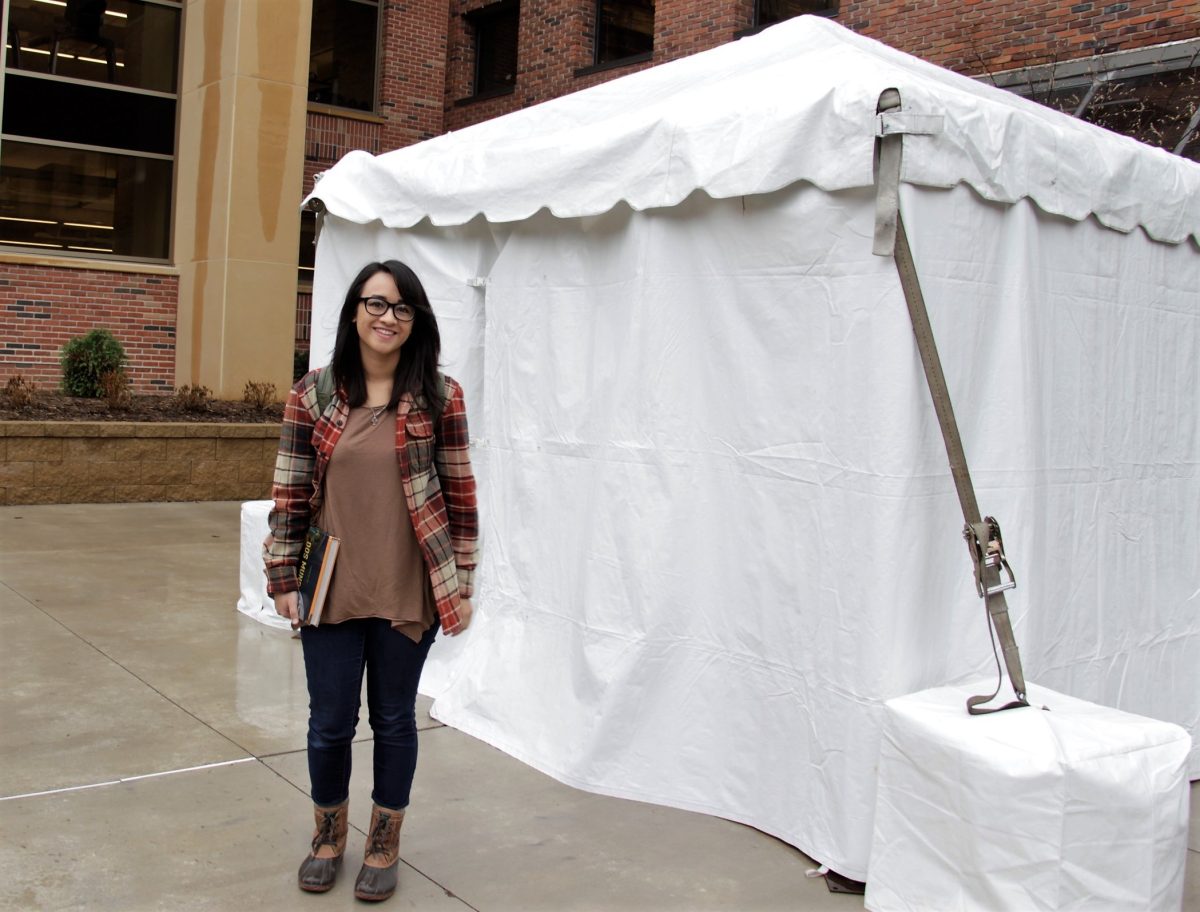Bethel’s 24-hour prayer tent is back in Kresge Courtyard for a month and sign-ups are booked. How are students experiencing God working in their lives and on campus?
By Callie Schmidt
Heidi Hankin opens the white flaps of the prayer tent. She cautiously walks in and takes a seat, sitting in silence for half an hour. She starts playing with Play-Doh, forming a ball in her hand.
“I’d rather just sit in silence with you (God) than try and think up things to say,” Hankin said.
Hankin, junior biblical and theological studies (BTS) major, is one of hundreds to sign up for Bethel University’s prayer tent. The white tent is set up on the pavement outside Kresge Courtyard, next to the rock used for spray painting that caused controversy in September.
From individual students to the volleyball team, everyone and anyone is encouraged to sign up for a 1-hour time slot on a spreadsheet from April 3 to May 3.
According to assistant campus pastor and Pray First leader Donna Johnson, the tent is sponsored by multiple different funding sources — herself, Pray First, Student Ministries, CityFront and Ralph Gustafson, Executive Minister for Church Relations.

“I really feel like this was needed for this time,” Johnson said. “I think there’s so much uncertainty in our world, in our country. There’s an anxiousness that’s out there, and if we don’t take the time to just be, and be in the presence of the Lord, and just be quiet…we’re going to get caught up.”
Johnson hopes each year there will be a group of students who decide to organize planning and funding for the prayer tent.
Prior permission to order the tent was needed from facilities management, who set it up. The first prayer tent, called “The Tent of Meeting” was implemented by former students Jay Quick and Chris Dirks in 2011.
An article in the November issue of The Clarion that year stated goals for the tent included long-lasting change and a chance to get away from materialism and the world’s distractions.
According to Johnson, it was senior business major Lars Anderson and a group of friends who brought the tent back last year, with oversight from campus ministries staff. An article by Communications Strategist Monique Kleinhuizen reported Anderson encouraged people looking for a holy place to go into the prayer tent.

For junior missional ministries and BTS double-major Jake Ruprecht, the prayer tent provided a sacred place to be alone with God.
He had a prayer tent shift scheduled at midnight. He didn’t feel like going, but decided to honor the commitment he made when he signed up.
Ruprecht didn’t know what to do when he entered, so he started reading his Bible. He read a verse about “letting your light shine” which stuck out to him, so he prayed that verse over Bethel and the world.
“I really prayed with authority … to proclaim light and life over the darkness that is everywhere,” Ruprecht said. “It was life-giving, and I felt so stirred in my heart to want to seek out the Lord more.”
Sophomore psychology and reconciliation double-major Breana Lacambra had a shift in the prayer tent April 5, the day following the Syria chemical attack. She felt overwhelmed by her Facebook feed. According to Lacambra, she felt mentally and emotionally unprepared for that.
“We need to be up-to-date on the things happening outside of our Bethel bubble so that we’re able to fight on behalf of those who can’t fight anymore and pray hope into the places that have only known fear.” — Breana Lacambra, sophomore psychology and reconciliation studies double-major

“I was afraid to further look into the matter because I’m very empathetic, so it would just weigh on me heavily,” Lacambra said. “But in that moment, I realized it’s not about me.”
Lacambra thoroughly researched the attack. Sitting in the prayer tent, waves of distress rolled over her as she sobbed.
“But I turned all that discomfort into motivation to pray, and I feel like that’s what we need to do more often,” Lacambra said. “We need to be up-to-date on the things happening outside of our Bethel bubble so that we’re able to fight on behalf of those who can’t fight anymore and pray hope into the places that have only known fear.”
According to Lacambra, she received a vision from God: A cloud of darkness was traveling down a street during the night. People came out of their houses holding candles, representing the Holy Spirit and a believer’s light in the darkness.
“I felt like, you can either step out and address this or you can recede back into the comfort of your own homes,” Lacambra said. “It was very moving, because our reality doesn’t match their realities. So a lot of the time, you just see them as a passing headline.”
For Ruprecht, honesty is key.
“When we’re like, ‘God, I’m just gonna be real and honest with you,’ all of the darkness and all of the bitterness or anything that could hinder us in our relationship with God goes away, and God gives us his Holy Spirit to fill those places with light,” Ruprecht said.
Hankin expressed learning this lesson of honesty through being in the prayer tent. For Hankin, it’s easier for her to pray for specific people than to be blunt with God about how she’s feeling.
“(God) was teaching me it’s okay to just be super honest with him, even if it means getting super frustrated at him, maybe throwing a couple swear words in there if that’s what you’re feeling,” Hankin said. “He’s not scared off by any of that.”
Hankin encourages people not to compare their relationship or experiences with God to those of other people’s, because she believes God wants to meet people in ways that will most resonate with each individual.
“I don’t think it’s possible to have a perfect prayer life,” Hankin said. “We’re all learning.”

![Nelson Hall Resident Director Kendall Engelke Davis looks over to see what Resident Assistant Chloe Smith paints. For her weekly 8 p.m. staff development meeting in Nelson Shack April 16, Engelke Davis held a watercolor event to relieve stress. “It’s a unique opportunity to get to really invest and be in [RAs’] lives,” Engelke Davis said, “which I consider such a privilege.”](https://thebuclarion.com/wp-content/uploads/2024/05/041624_KendallEngelkeDavis_Holland_05-1200x800.jpg)















